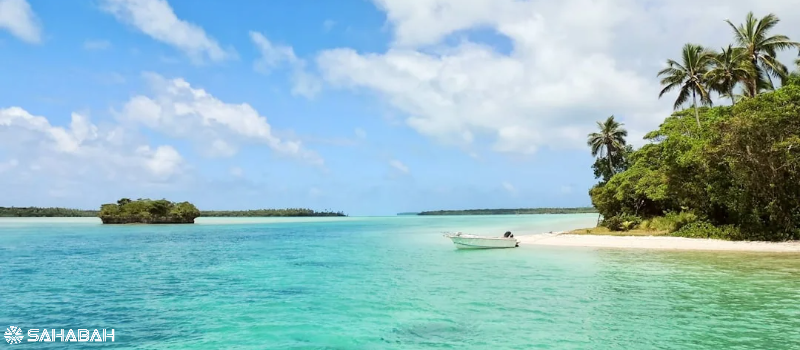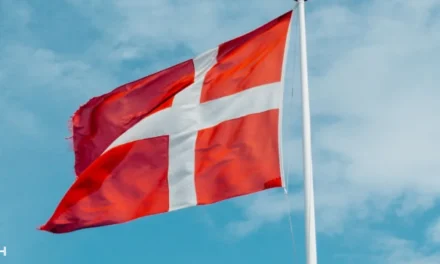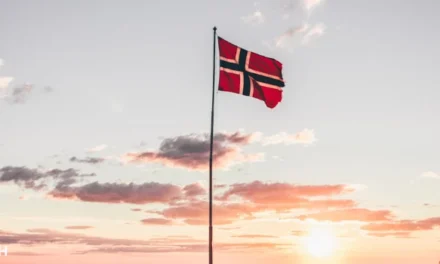Jamaica, a small Caribbean nation, has long maintained a delicate balance in its approach to the Israeli-Palestinian conflict. Recently, the country has made headlines by formally recognizing Palestine as a state, a move that has sparked discussions about Jamaica’s support for Israel. This article delves into the nuanced relationship between Jamaica and Israel, exploring the factors that shape Jamaica’s foreign policy in the Middle East.
Historical Context of Jamaica-Israel Relations
Jamaica and Israel have shared diplomatic ties since the 1960s, marking a long-standing relationship between the two nations. Over the decades, this connection has been characterized by:
- Economic cooperation
- Cultural exchanges
- Technical assistance in agriculture and water management
However, Jamaica’s recent decision to recognize Palestine as a state has added a new dimension to this relationship.
Jamaica’s Official Position on Israel and Palestine
On April 22, 2024, Jamaica made a significant diplomatic move by officially recognizing the State of Palestine. This decision, announced by Minister of Foreign Affairs and Foreign Trade Kamina Johnson Smith, reflects Jamaica’s commitment to a two-state solution for the Israeli-Palestinian conflict.
Key points of Jamaica’s stance:
- Advocacy for a two-state solution
- Support for Israel’s security
- Upholding the dignity and rights of Palestinians
- Commitment to UN principles and peaceful coexistence
Johnson Smith stated, “Jamaica continues to advocate for a two-state solution as the only viable option to resolve the longstanding conflict, guarantee the security of Israel and uphold the dignity and rights of Palestinians.”
Factors Influencing Jamaica’s Stance on Israel
Several factors contribute to Jamaica’s position on Israel and the broader Middle East conflict:
- International pressure: As a member of the UN and CARICOM, Jamaica faces diplomatic pressures from various global actors.
- Domestic considerations: The Jamaican public’s opinion and the influence of various interest groups play a role in shaping policy.
- Economic interests: Jamaica must balance its economic ties with Israel against its stance on Palestinian rights.
- Humanitarian concerns: The ongoing conflict in Gaza and its humanitarian impact have influenced Jamaica’s position.
Jamaica’s Voting Record in the UN Regarding Israel
Jamaica’s recent UN voting patterns reflect its evolving stance:
| Date | UN Action | Jamaica’s Vote |
|---|---|---|
| April 2024 | Resolution calling for Palestine’s UN membership | In favor |
| Previous votes | Various Israel-related resolutions | Generally balanced |
Jamaica joined 142 other countries in voting for the resolution to reconsider Palestine’s application for UN membership, signaling a shift in its approach.
Public Opinion in Jamaica on Israel and Palestine
While official government statements shape Jamaica’s foreign policy, public opinion also plays a crucial role. Some key observations:
- Many Jamaicans support a peaceful resolution to the conflict
- There’s growing sympathy for Palestinian rights
- Some segments of society maintain strong support for Israel
“Jamaica’s decision to recognize Palestine reflects a growing sentiment among our people for a just and lasting peace in the Middle East,” noted a prominent Jamaican political analyst.
Jamaica’s Trade Relations with Israel
Despite the recent recognition of Palestine, Jamaica continues to maintain economic ties with Israel. Key areas of cooperation include:
- Agricultural technology
- Water management systems
- Cybersecurity
These ongoing relationships highlight the complex nature of Jamaica’s position, balancing diplomatic moves with economic interests.
Cultural Exchanges Between Jamaica and Israel
Cultural ties between Jamaica and Israel have been an important aspect of their relationship. Some notable exchanges include:
- Educational programs and scholarships
- Artistic collaborations
- Religious tourism
These cultural connections continue to foster understanding between the two nations, even as Jamaica takes a more balanced approach to the Israeli-Palestinian conflict.
Jamaica’s Position on the Israeli-Palestinian Conflict
Jamaica’s stance on the conflict can be summarized as follows:
- Support for a two-state solution: Jamaica advocates for the coexistence of Israel and Palestine as sovereign states.
- Calls for de-escalation: The Jamaican government has repeatedly urged for an end to hostilities.
- Humanitarian concerns: Jamaica has expressed deep concern for the humanitarian situation in Gaza.
- Balanced approach: While recognizing Palestine, Jamaica continues to acknowledge Israel’s right to security.
Impact of Jamaica’s Stance on Regional Politics
Jamaica’s decision to recognize Palestine has implications for Caribbean regional politics:
- It aligns Jamaica with 13 other CARICOM nations that have recognized Palestine.
- It may influence other Caribbean nations to reassess their positions.
- It contributes to a growing international consensus on Palestinian statehood.
Challenges in Jamaica-Israel Relations
The recognition of Palestine presents some challenges for Jamaica-Israel relations:
- Potential strain on diplomatic ties
- Possible impact on economic cooperation
- Balancing act in international forums
However, Jamaica’s government has emphasized its continued support for Israel’s security, indicating a desire to maintain positive relations with both sides.
Future Outlook for Jamaica-Israel Relations
Looking ahead, Jamaica’s relationship with Israel is likely to evolve:
- Continued economic and technical cooperation is probable
- Diplomatic engagement may require more nuanced approaches
- Jamaica may play a more active role in peace initiatives
Jamaica’s Support for Israel: A Nuanced Perspective
In conclusion, Jamaica’s support for Israel remains, but it now exists within a more complex framework that also acknowledges Palestinian rights. This balanced approach reflects Jamaica’s commitment to international law, human rights, and peaceful conflict resolution.
As the situation in the Middle East continues to evolve, Jamaica’s stance serves as an example of how small nations can navigate complex global issues while maintaining their principles and international relationships.
FAQs: Does Jamaica Support Israel?
Yes, Jamaica formally declared its solidarity with Israel.
What is Jamaica’s stance on the Israel-Palestine conflict?
Jamaica continues to advocate for a two-state solution as the only viable option to resolve the longstanding conflict.
How does Jamaica show support for the two-state solution?
Kamina Johnson Smith, a key advocate for a two-state solution, reaffirmed Jamaica’s strong commitment to the principles of mutual respect and peaceful resolution.
Has Jamaica recognized the state of Palestine?
Jamaica has shown solidarity with Palestine by supporting the recognition of the Palestinian state within international forums such as the United Nations.
What diplomatic efforts has Jamaica made towards peace in the region?
Jamaica has actively supported diplomatic solutions, de-escalation efforts, and the release of hostages in the Israel-Palestine conflict.
How does Jamaica contribute to humanitarian aid in the region?
Jamaica emphasizes the importance of access to humanitarian aid for the people affected by the conflict and supports efforts for de-escalation and the establishment of lasting peace.
Who is Andrew Holness in relation to Jamaica’s stance on the Israel-Palestine conflict?
Andrew Holness is the Prime Minister of Jamaica who upholds Jamaica’s commitment to the principles of mutual respect, recognition of self-determination rights, and access to humanitarian aid in the region.
Citations: [1] https://www.jpost.com/international/article-798450 [2] https://www.middleeastmonitor.com/20240424-jamaica-formally-recognises-palestine-as-a-state/ [3] https://www.aa.com.tr/en/africa/jamaica-formally-recognizes-palestine-as-a-state/3200542 [4] https://mfaft.gov.jm/site/jamaica-joins-international-call-for-palestine-to-be-granted-un-membership/ [5] https://www.linkedin.com/pulse/jamaica-officially-recognizes-state-palestine-tobsf





